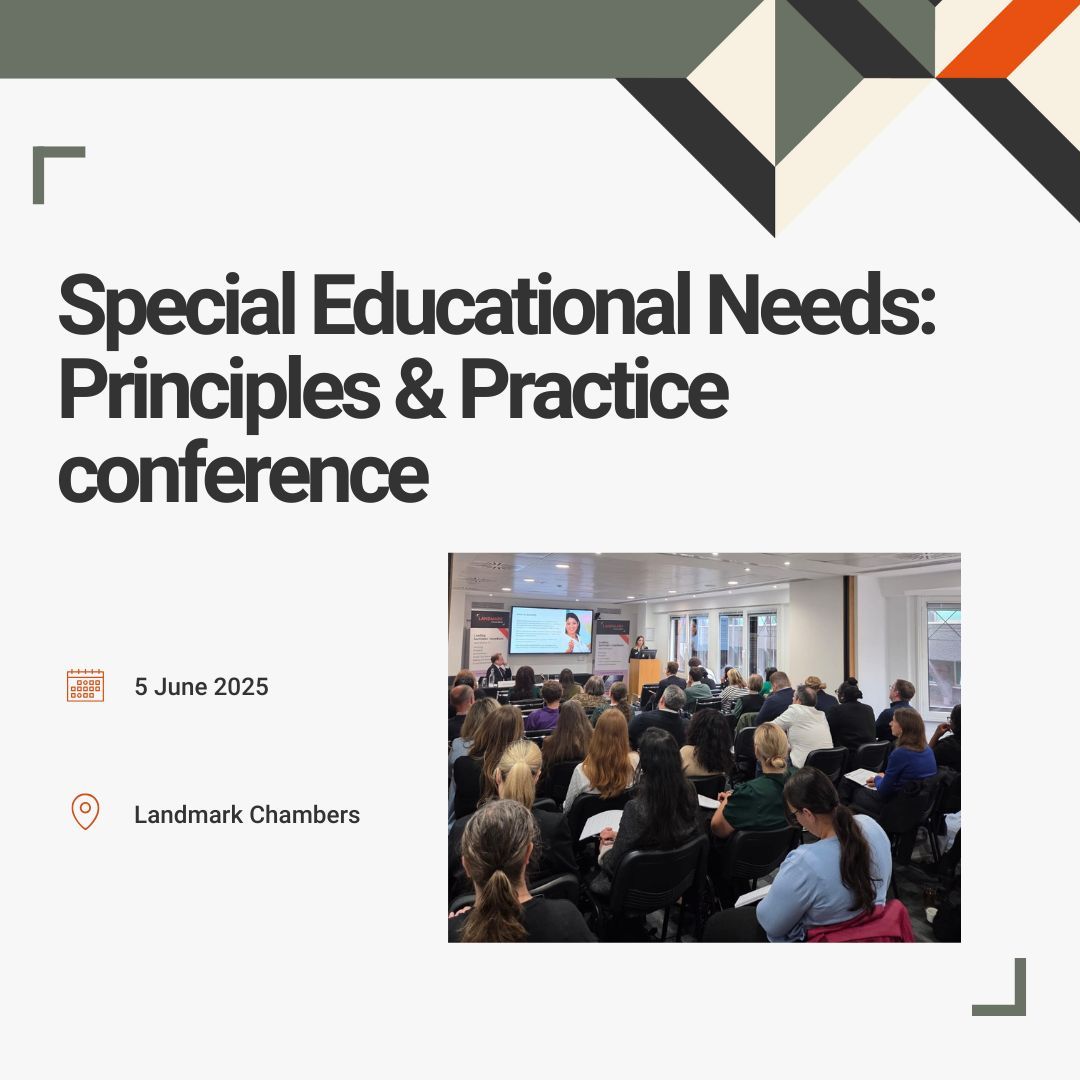
EOTAS Under the Microscope: Legal Clarity, Practical Gaps, and Parental Challenges After the SEND Conference
As the SEND landscape continues to shift under the weight of reform, delay, and underfunding, Education Otherwise Than at School (EOTAS) has taken centre stage in many families’ battles for suitable education. The recent Landmark Chambers Law Conference 2025 brought renewed focus to this complex and often misunderstood legal provision and raised critical questions about how EOTAS is being applied, resisted, and in some cases, actively undermined.
This article unpacks the legal framework, key messages from the conference, and practical implications for families navigating EOTAS today.
What Is EOTAS? Clarifying the Legal Framework
Education Otherwise Than at School (EOTAS) is defined under section 61 of the Children and Families Act 2014, allowing Local Authorities (LAs) to arrange education outside of a school setting when a traditional school environment is deemed unsuitable for the child.
Key legal principles discussed at the IPSEA conference include:
EOTAS is not elective home education. It is a statutory provision, arranged and funded by the LA, when no school setting can meet the child’s needs.
If EOTAS is agreed, Section I of the EHCP is left blank, and Section F must fully specify what will be provided, by whom, and how often.
The decision to provide EOTAS must be based on professional evidence, commonly involving psychological or psychiatric input, as well as input from schools or therapeutic providers.
These principles are well-established in law but not always followed in practice.
Barriers in Practice: What Parents Are Reporting
Several recurring challenges were raised by practitioners and parents during the conference:
- EOTAS being confused with elective home education
Families are often steered toward informal “home schooling” arrangements without the statutory safeguards and funding that EOTAS provides.
- Reluctance to name EOTAS in EHCPs
LAs may agree in principle to alternative provision but resist writing it clearly into Section F, making it difficult to enforce and monitor.
- Lack of clarity and accountability
Many EHCPs naming EOTAS lack delivery plans, review mechanisms, or provider accountability. This undermines both the child’s education and the parent’s ability to hold the LA to account.
- Delays due to insufficient evidence
Parents are frequently told to “try other options first” or “wait and see” despite medical or clinical advice showing school-based education is causing distress or deterioration.
The Mental Health Link: When School Simply Doesn’t Work
A growing driver behind EOTAS requests is emotionally based school avoidance (EBSA) or mental health deterioration due to anxiety, trauma, or previous school-based exclusion.
At the conference, legal experts confirmed that:
Where mental health evidence indicates that a child is unable to cope in school, EOTAS must be considered. Failure to explore EOTAS in these cases may constitute a breach of the LA’s statutory duties under both the Children and Families Act and the Equality Act 2010.
However, securing EOTAS still often requires persistence - and the right evidence.
What Should Be in an EOTAS Provision?
An effective EOTAS section within an EHCP should include:
- The type of provision (e.g., online tuition, therapy, vocational learning)
- Named providers or qualifications required of professionals delivering the support
- Timings and frequency (e.g., “3 x 45-minute SALT sessions per week”)
- A monitoring and review process
- Integration or reintegration planning (if appropriate)
Provision should still be made very clear - vague commitments like “access to a tutor” or “support when available” are unlawful and unenforceable.
Can the Tribunal Order EOTAS?
Yes. Parents can appeal to the SEND Tribunal to seek EOTAS, either during an EHCP appeal or following refusal by the LA to implement a proposed plan.
However, even where tribunals agree with parents, problems can persist:
- Some LAs delay implementing orders
- Others underfund provision or restrict it to “transitional” packages
- Monitoring of delivery remains inconsistent nationwide
This reinforces the professional position that securing a tribunal decision is only half the battle, ongoing advocacy and enforcement remain essential.
The Path Forward: What Families and Professionals Can Do
For families exploring or seeking EOTAS, the conference outlined a clear process:
- Build a strong evidence base – from EPs, CAMHS, private clinicians, or medical consultants
- Request an emergency or annual EHCP review if the current provision is failing
- Clearly request EOTAS in writing, citing section 61
- Ensure the EHCP reflects full detail in Section F and a blank Section I
Seek legal advice or advocacy support if delays, refusals, or vague wording arise
Conclusion: EOTAS Is a Legal Right - But It Must Be Claimed
The conference brought one message into sharp focus: EOTAS is lawful, necessary, and too often avoided.
With schools increasingly unable to meet the needs of some pupils, due to anxiety, trauma, exclusion, or gaps in specialist provision, families must be equipped to request and secure education that works outside the traditional model.
But the legal test must be backed up by robust evidence and that EOTAS is and should remain a last resort option for education.
Need help building your EOTAS case or reviewing an EHCP?
I support families through every stage of the EOTAS process from assessment, to evidence-gathering, to building a package and proposal, appeals and monitoring.
Let’s get the provision your child actually needs, in school or beyond.
